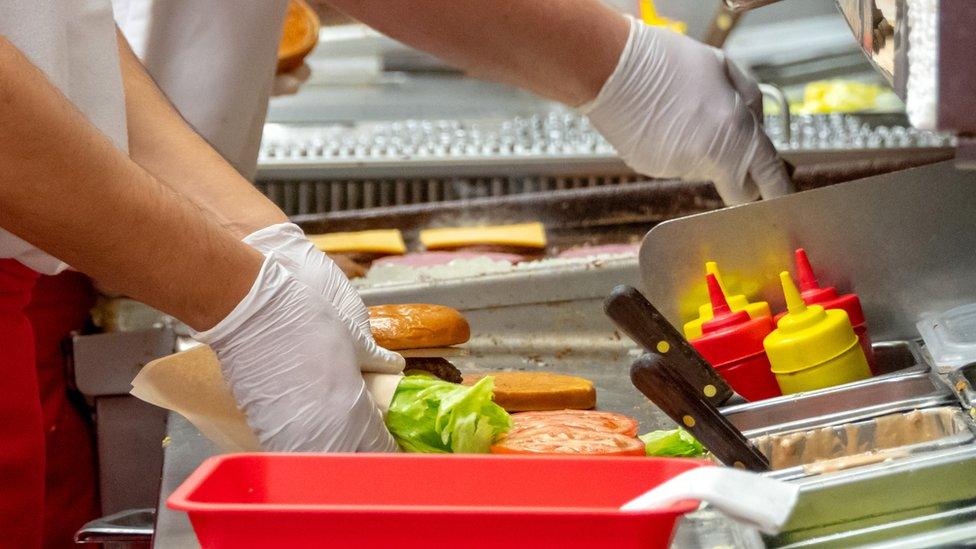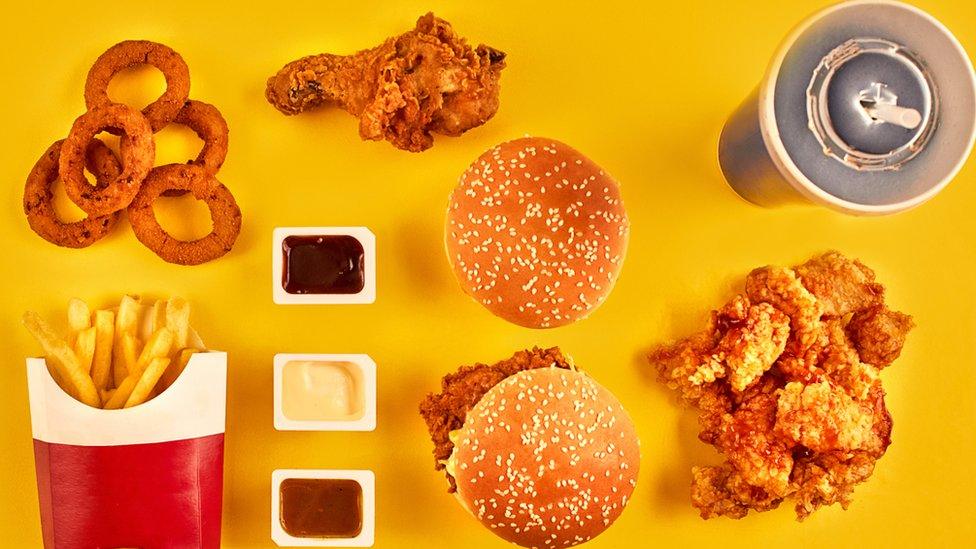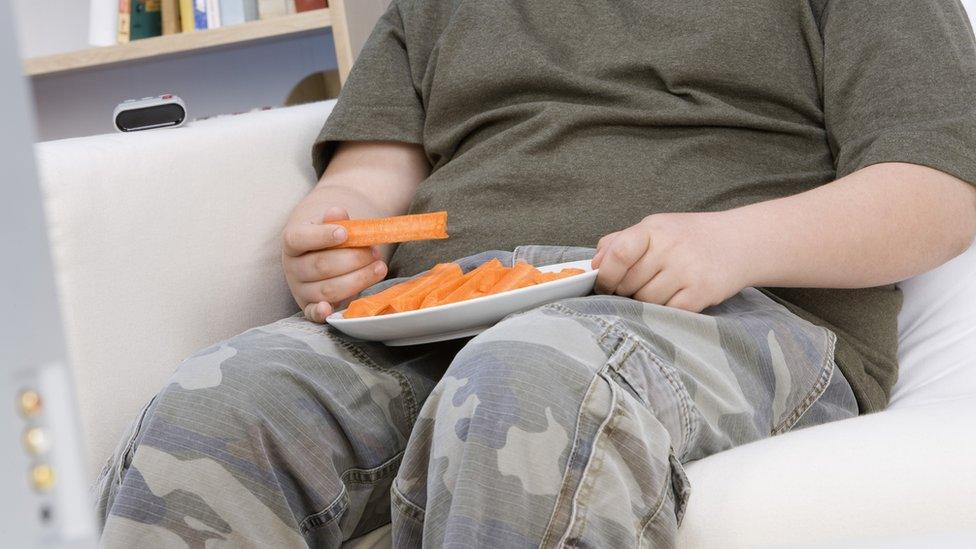Report says children pass too many unhealthy food choices on walk to school
- Published
- comments

New findings say that children's school journeys are encouraging them to buy junk food
A new report by the Royal Society for Public Health (RSPH) argues that children are overexposed to unhealthy food options on their journeys to school.
The research, produced in partnership with Guy's and St Thomas' Charity, says that many pupils are likely to come across a number of unhealthy food outlets and adverts on their way to and from school.
Despite efforts to try and get children eating healthier options at home and eating better lunches at school, the same isn't true of food available beyond the school gates.
The new research argues that for those with a bit of money left at the end of the school day and some spare time to hang out with friends, takeaways on their doorstep selling junk food become the obvious option for children.
The RSPH spoke to a number of school children living in Lambeth and Southwark, in London, to find out more about their eating habits and the impact their environment had on their food choices.
A national poll was also carried out to find out the public's attitudes towards the junk food problem and what they believe can be done to create a healthier environment for school children.
The results of the poll showed overwhelming support for more to be done to tackle the problem.
Dr Radha's guide to a healthy diet
What does the research say?

Many young people see fast food shops as a cheap and easy option
The report highlights a number of key factors which affect food choices made by school children:
1. Availability
According to the research, fast food outlets are attractive options for students because they're often very close to their schools.
Data from Cambridge University's Centre for Diet and Activity Research (CEDAR) says the number of fast food shops within 400m of schools (around a five minute walk) is increasing in England.
This is even higher in parts of London where some schools have an average of six different junk food outlets within a few minutes walk of the gates and the figure continues to increase in London's poorest areas.
One child told the RSPH: "If you wanna go to a fried chicken shop you find the nearest secondary school, and then you know, there's gonna be one there."
WATCH: What does junk food do to your body?
2. Low prices
Many fast food shops offer discount deals to school children - making them affordable even for those who don't have a lot of money to spare.
"Parents only give us a small amount of money, so obviously we buy cheap food, which is the junk food," another child said.
Some students also shared that even when deals weren't openly advertised, many junk food outlets near schools gave informal 'school kids' discounts to children wearing uniforms.
3. The rise of delivery apps
The growing popularity of apps offering food delivery services was also highlighted by the report.
Earlier this year, the Times newspaper reported that some well-known fast food chains were delivering food to school gates through apps despite having agreements in place not to provide food to students.
Not only do school children have the option to buy fast food in person, but they can also make purchases online.
The RSPH have recommended a blanket ban on app-based delivery services taking junk food to school gates.
4. Junk food adverts
On their journeys to school, many children come across adverts on billboards, in telephone boxes and at bus stops promoting junk food. Healthier options just don't get the same levels of exposure in these areas.
Many of the children the RSPH spoke to said that adverts were the main factor that influenced what they ate, particularly when it came to limited deals on new food products.
London mayor Sadiq Khan recently banned the advertising of unhealthy food and drink options on tubes, buses and bus stops in the capital.
When it comes to the rest of the UK however, junk food adverts are still common.
What can be done?
To tackle the junk food problem, the RSPH has suggested that discounts aimed at school children and app-based food delivery services should be banned.
It has also suggested new rules to ban the sale of unhealthy food to students by junk food shops that are either in close proximity to schools or which would typically sell food to children after the school day.
What do you think about this issue?
Do you come across junk food outlets or adverts or your way to school? What do you think can be done to tackle the problem? Let us know in the comments.
- Published10 July 2019

- Published8 August 2018
- Published30 May 2018

